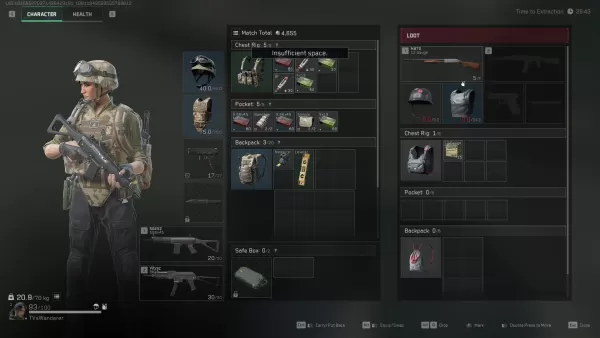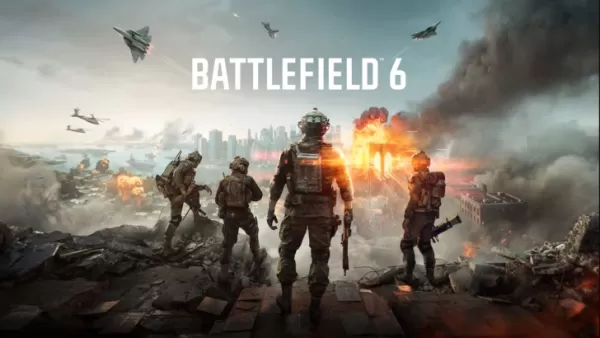Operations mode, often referred to as Hazard Operations or Extraction mode, lies at the core of Delta Force's high-stakes action. Whether you label it Operations or "raiding," the concept remains consistent—parachute into the fray, gather valuable gear, and escape before rival players or AI adversaries eliminate you. The twist in this mode, as with other extraction shooters, is that everything you carry into the game is at risk; should you perish, you'll lose it all.
This guide transcends mere survival tactics. Here, you'll gain a comprehensive understanding of how Operations mode functions from beginning to end, encompassing how to manage your pace, gear, and make strategic decisions that accrue value over time. Conversely, if your focus is strictly on survival strategies for Operations mode, our dedicated blog post on the topic is the perfect resource.
Whether you're tackling the mode solo or with a squad, a thorough grasp of the system is crucial for playing more intelligently and efficiently.
What Operations Mode Actually Is
Delta Force's Operations mode presents a dynamic PvPvE sandbox where no two matches are the same. You, along with up to two other players, enter a live map teeming with AI soldiers, scattered loot, and competing teams. The objective is to collect as much loot as possible and safely extract before you're taken down.
Unlike traditional shooter modes, Operations mode doesn't focus on accumulating a score. Instead, what you manage to extract contributes to your external inventory. However, should you fall in battle, you'll lose everything on your person except for items safely stored in your Safe Box. This risk-and-reward dynamic injects a palpable intensity into the mode, even if your strategy involves merely securing medical supplies and making a stealthy exit.
Loadout Planning and Inventory Control
The foundation of your success in Operations mode is laid before you even set foot on the map—it begins with crafting an optimal loadout tailored to the situation at hand. Entry into each match comes with a cost, so your loadout decisions are pivotal. Essential gear such as a helmet, armor, chest rig, and backpack are indispensable; you can't deploy without them. However, the choices you make beyond these basics will shape your gameplay.

While extraction zones are generally fixed, some maps introduce dynamic elements like elevators or enemy-controlled checkpoints. It's wise to map out your exit strategy before venturing deep into looting territory.
Loot Smarter, Not Harder
Every item in Operations mode has a monetary value, but not all are worth the associated risk. Initially, prioritize collecting healing items, weapon attachments, and rare electronics—these are compact, valuable, and can be secured in your Safe Box if necessary.
Although heavy weapons or armor may seem appealing, they can hinder your mobility and occupy valuable space. Only consider carrying them if you're certain of a successful extraction or if you're close to an exit with nothing to lose.
A helpful tip for newcomers is to steer clear of major loot zones during the initial minutes of a match. Allow other teams to clash over these hotspots, then swoop in to scavenge what's left. If playing solo, focus on looting around the map's periphery and revisit these areas later. You'll be amazed at the quality of gear abandoned after a fierce team skirmish.
Picking the Right Operative
The Operative you select fundamentally influences your approach in Operations mode. Not all Operators are suited for stealth or loot-centric strategies, so choose one that aligns with your objectives.
Luna and Hackclaw excel in intelligence gathering and mobility. Luna can tag enemies and disrupt advances with her shock arrows, while Hackclaw moves silently and executes stealthy takedowns with her knife. Stinger's healing kit makes him ideal for team play, particularly when supporting more aggressive teammates.
Steer clear of Operatives with conspicuous or attention-grabbing abilities unless your strategy involves direct confrontation. Characters like D-Wolf may be entertaining, but they tend to draw unwanted attention in a mode where remaining undetected often yields better outcomes.
Fight When It Matters
In Operations mode, choosing your battles wisely often outweighs the importance of winning them. While PvP engagements can yield gear and XP, they also consume time and attract attention. Only engage when it's advantageous or necessary.
Should you find yourself in a firefight, keep moving and aim to conclude it swiftly. Leverage your abilities to gain an edge—Luna's detection arrow can reveal hidden foes, and Stinger's smoke can provide cover for healing or retreat.
Remember, you can always loot fallen adversaries later. If two teams are locked in combat, hold back and let them weaken each other. Although third-partying carries risks, it's an effective way to acquire gear without having to outgun everyone yourself.
Making the Most of Each Match
Every raid presents an opportunity to accumulate value, refine your skills, or learn something new. Don't dwell on a poor run; instead, use it to refine your strategy for the next one.
Conserve your credits during a losing streak and play more strategically when you're on a winning run. Prioritize upgrading your Safe Box as soon as possible, experiment with different Operator configurations, and familiarize yourself with the maps to identify the most lucrative loot paths.
Over time, your focus will shift from merely surviving to optimizing your gameplay. This is when Operations mode truly becomes engaging.
Delta Force's Operations mode transcends the simple act of looting and escaping. It's a complex interplay of risk, strategic planning, and astute decision-making. Construct your loadout with intention, loot judiciously, and discern when to engage or evade. And always remember, every setback is merely a step in the journey that makes your ultimate triumph even sweeter.
For an optimal gaming experience, consider playing Delta Force on a PC using BlueStacks. This setup offers quicker load times, precise control, and a more straightforward approach to managing your inventory. It's also the best way to remain competitive while mastering the game's intricacies.








